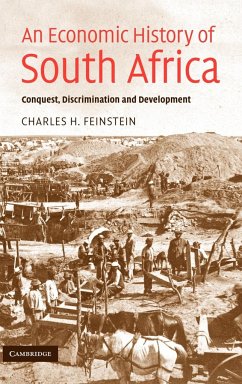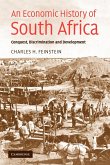This book is the first economic history of South Africa in over sixty years. Professor Charles H. Feinstein offers an authoritative survey of five hundred years of South African economic history from the years preceding European settlements in 1652 through to the post-Apartheid era. He charts the early phase of slow growth, and then the transformation of the economy as a result of the discovery of diamonds and gold in the 1870s, followed by the rapid rise of industry in the wartime years. The final chapters cover the introduction of apartheid after 1948, and its consequences for economic performance. Special attention is given to the processes by which the black population were deprived of their land, and to the methods by which they were induced to supply labour for white farms, mines and factories. This book will be essential reading for students in economics, African history, imperial history and politics.
Hinweis: Dieser Artikel kann nur an eine deutsche Lieferadresse ausgeliefert werden.
Hinweis: Dieser Artikel kann nur an eine deutsche Lieferadresse ausgeliefert werden.
'An Economic History of South Africa [is] an excellent overview of the county's history. it will be of interest to anyone who wants an introduction to South Africa. It would be a shame if the readership of this accessible volume were confined to those studying economic history, for no one reading this book will doubt the difficult legacy of social inequality and economic injustice inherited by the post-apartheid South African government.' Economic History Review








